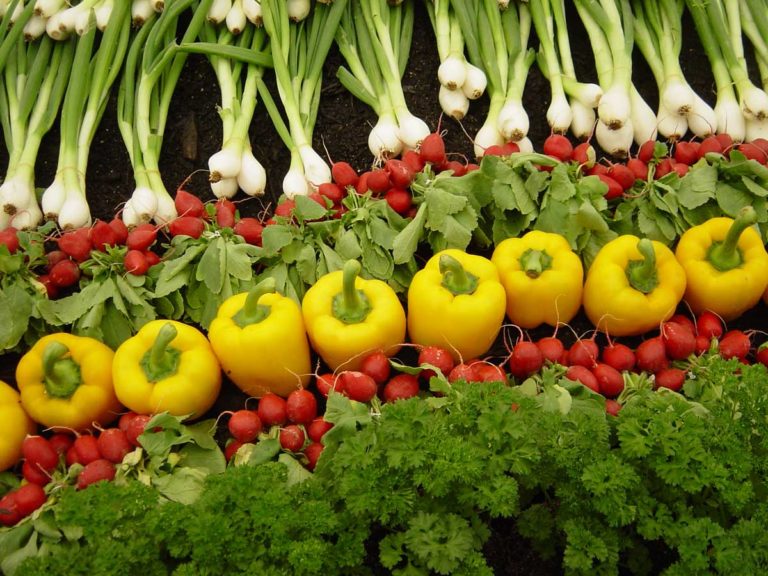Farming for the Future: Organic Farming Practices Are Saving our Soil and Our Bodies
Productive, nutrient-rich soil is one of earth’s most valuable resources that we often take for granted. It is known that conventional farming practices strip soil of the microorganisms needed to sustain soil’s vitality and future potential, all the while reducing nutrients in the produce it feeds. Organic farming, in response to this nutritional and environmental crisis created by standard farming practices, has grown substantially over recent years. Growers and consumers are still skeptical though, wondering if the tedium and protocol behind organic farming practices is actually paying off. The consensus from the science community is a loud resounding “yes!” Organic farming practices simultaneously increase soil’s health while boosting nutrients in our food.
Organic Farming for Ecological Preservation
Organic farming practices have the potential to contribute significantly to environmental health and sustainability in numerous ways. In a study posted by the Canadian Center of Science and Education, Lynette Abbott and David Manning concluded that, “The health of soil is dependent upon complex biophysical and biochemical processes which interact in space and time, and if they are managed effectively, they can make efficient use of nutrient resources and water for agricultural production. In doing so, loss of nutrients to surrounding land or water bodies or in wind erosion can be minimized” (Abbot and Manning). Their study found that a higher presence of microorganisms in organic soil, which is responsible for the soil’s self-sustaining chemical and physical processes that maintain soil vitality, was directly related to the land care practices conducted over consistent years. Some of these organic care practices include; minimizing loss of nutrients to ground and surface water bodies, releasing nutrients according to plant requirements, reducing erosion by minimizing tillage, using rainfall for irrigation, and budgeting for the replacement of nutrients after nutrient loss is detected.
Chemical Properties of Soil Improved
Why is preserving microorganisms essential for soil health? Microorganisms and fauna in soil create highly diverse and dynamic communities that contribute, over either short or long time frames, to the transformation of geological minerals and release of essential nutrients for plant growth. Carefully replacing lost nutrients to soil can, and will, feed good microorganisms for life cycles to come rather than cutting their lineage short.
Furthermore, a healthy soil profile is one that is also microbially-resistant to malignant microorganisms. Creating a microbially balanced soil environment where good fights the bad is essential, but pesticides and insecticides make this nearly impossible as they exterminate most microbial presence in soil. Organic practices that seek to equip the soil to fight infection and threats on its own, rather than intervening with harsh chemicals, has proven more effective at maintaining the life-span of soil and crop nutrients.
Physical Properties of Soil Improved
Organic farming is proven to reduce the soil’s susceptibility to compaction and improve soil texture and permeability. Reported by the American Society of Agronomy, a study was recently conducted near Mead, NE, to investigate the long- term impacts of organic management on soil physical properties. The physical properties investigated included soil aggregate stability, bulk density, Proctor bulk density (parameter of soil’s susceptibility to compaction), water infiltration, saturated hydraulic conductivity, and soil-water retention characteristics in conventional farming, conventional farming with diversified rotation, organic practices with green manure, and organic practices with animal manure. The results indicated that organic farming can “ improve soil physical properties in the long term and provide a strategy for farmers to enhance soil physical quality and agricultural sustainability.”
Soil Health and our Food
Organically managed soil has a direct correlation to higher nutrient quantities in crops. A new study published in Organic Agriculture investigated the plant tissues of apple and peach fruits for nutrient counts in both conventional and organic plants. Alongside the detection of plant nutrients, the soil from the conventional fruit and the organic fruit was also monitored. It was concluded that “organic fruit production practices harbored both greater microbial activity and higher concentrations of some plant and soil nutrients and are anticipated to promote better soil health and productivity than conventional practices.”
Overall, organic farming practices are doing the double work of sustaining our land for future growth, and sustaining our bodies for daily and long-term growth and wellness. As our soil reaps the benefits of careful management and chemical free practices, health sustaining foods are becoming more accessible and potent in a world that seems increasingly threatening to the human body.


